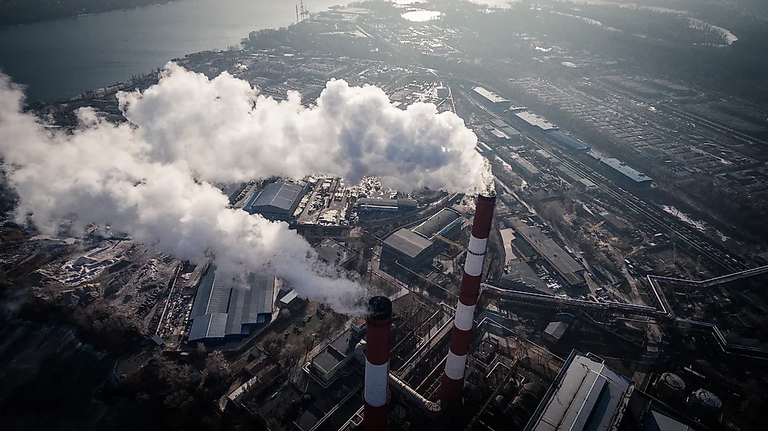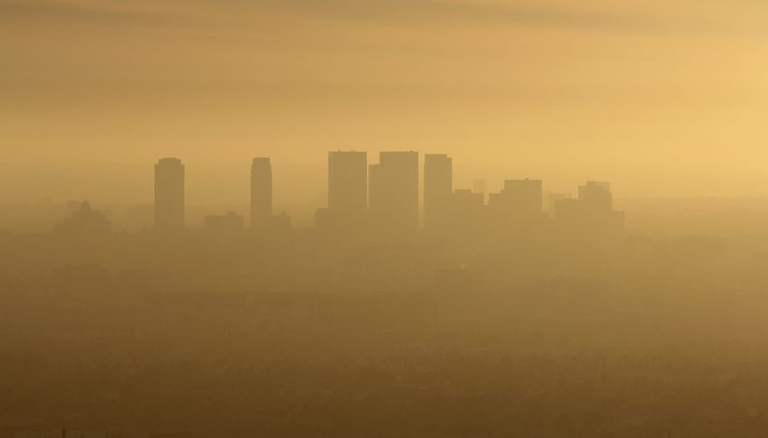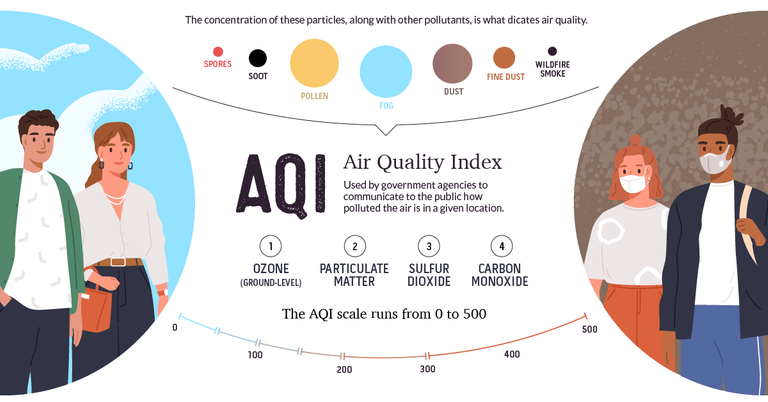How air pollution is affecting the living things in different ways?
Air pollution is not a modern-day phenomenon but has existed for millions of years. Some naturally occurring gases and liquids and solids cause air pollution. But historically, the amount of this pollution in the atmosphere has been low. That is why it did not cause much harm to living beings.

But as humans began to expand their activities, the amount of natural and man-made pollutants that polluted the atmosphere began to increase. This defect made the atmosphere dirty and polluted. The levels of many air pollutants in the ground are much higher than in the past. That is why they have now become a threat to human health all over the world. They are afflicting children, women and men with strange diseases.
This is a major paradox and negative aspect of modern development. It is also noteworthy that "more than 50%" of air pollution in the world is caused by the inhabitants of rich countries which is only "10% of the total population of the planet". It is as if the activities of rich westerners have caused billions of people in poor countries to suffer from pollution.
In ancient times, volcanic eruptions or forest fires spread air pollution. The volcano releases sulfur, chlorine gas and ash particles into the air. Forest fires emit smoke and carbon monoxide into the air. Creatures also began to pollute the air. In animals and humans, the respiratory system produces carbon dioxide, while some animals emit methane gas while digesting food. Both are gases that increase pollution.
There are other natural sources of air pollution, such as sand and soil in the air in areas where green is scarce. The crust also contains elements radium, thorium and uranium. These elements decompose to form radon gas. It is also a harmful gas to human health like methane, carbon dioxide and sulfur. If radon gas is abundant in the air, then prolonged exposure to it can lead to lung cancer.
Some species of trees and plants emit volatile organic compounds, especially in summer. These are organic chemicals that combine with the nitrogen gas and sulfur in the air to create smog. Trees that emit these organic chemicals include poplar, oak, willow and black gum trees.
Gradually humans started using different chemicals. Then the industrial age began. Man began to use coal, petrol, natural gas, wood, kerosene and other fuels in his activities. Due to human activities, new pollutants started to enter the air or the atmosphere. Importantly, the amount of these pollutants in the air has increased significantly over the last one hundred years. As a result, they are now having a negative impact on human health and daily life.

One of the wonders of air pollution that affects daily life is "smog". It usually occurs when water vapor is added to smoke from cars and factories. In winter, water vapor in the atmosphere freezes and produces "fog". Fog, however, is not harmful to human health because it contains only water vapor. The problem arises when smoke from cars and factories also becomes part of the fog. This mixture is then called smog and becomes harmful to all living things, including humans.
There are two major components to air pollution: the first is harmful gases and the second is tiny particles of chemicals that we cannot see. These particles are termed "particulate matter". There are two types of these particles. Particles with a diameter of 10 to 2.5 micrometers and particles smaller than 2.5 micrometers.
They are called PM 2.5. Human hair has a diameter of 70 micrometers, so particulate matter particles are even thinner than human hair. If they enter the human body through the nose, mouth and ears, they join the bloodstream and reach every organ. Unfortunately, if the particles contain dangerous chemicals, they can cause some damage to the human body.
According to experts, carbon monoxide (gas), nitrogen oxides (gases), carbon dioxide (gas), lead, ozone (gas), mercury, sulfur dioxide (gas), particulate matter, asbestos, benzene, fuel Gases from the decomposition of oil, hydrocarbons, volatile organic compounds, chlorofluorocarbons, ammonia (gas) and radioactive elements are responsible for increasing air pollution in the earth.
Air pollution has two effects on human health. One lasts only a short time. The second type of effect is long lasting. Short-term effects can cause eye pain. A person gets a cough and has difficulty in breathing. Short-term effects quickly disappear if clean air is released. Long-term effects occur when a person spends a lot of time in an environment of air pollution. Then the various toxic gases and toxic particles in the air enter the bloodstream and gradually infect human beings with various diseases. These diseases include respiratory diseases, stroke and heart disease. Some types of cancer are also born.
Recent reports from international health research organizations show that "eight million to ten million people" now lose their lives every year due to air pollution. It is as if air pollution, like some diseases, has become a great enemy of mankind. The number of pollutants has risen sharply over the last few hundred years. Some of these elements are more life threatening and some less. Fortunately, such devices have been invented with the help of which it is now possible to know which air pollutants are present in any place and in what quantity.

According to environmentalists, six or seven elements pollute the air more. These include: carbon monoxide, lead, nitrogen oxides, ozone, particulate matter, sulfur dioxide and hydrocarbons. That's why most air pollution detection devices detect the amount of the six or seven elements listed above. If the quantity is less then the atmosphere of the place is clean but if the quantity is more then the place becomes polluted.
IQAir is the oldest manufacturer of air pollution detection equipment. It was founded in 1963 by two German inventors. The company is currently headquartered in Switzerland. Significantly, the company checks air pollution in cities around the world. The data obtained is then advertised on the company's website. This data is considered reliable worldwide. The ten most polluted countries in the world by IQAir scale are: Bangladesh, Pakistan, India, Mongolia, Afghanistan, Oman, Qatar, Kyrgyzstan, Indonesia and Bosnia and Herzegovina.
Thank you for reading! Stay Safe!👋😌